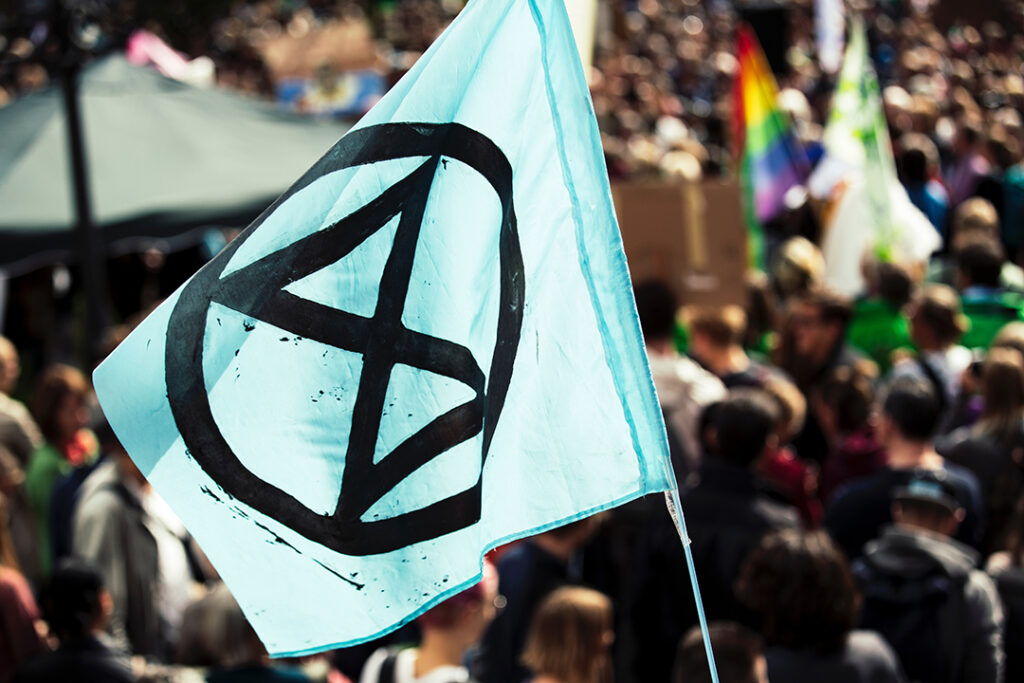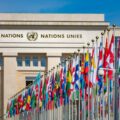From wars to climate change: World religions and global challenges
From wars to climate change: World religions and global challenges
Today’s world faces urgent challenges that transcend national borders. What is the role of religions in addressing these global concerns?
A global world
Nowadays, we live in a world where pressing problems transcend national borders. Like the world, the challenges we face have become global, connecting people across the planet. Leaders from all over the world come together to discuss issues like climate change, wars, migration, and poverty. World religions also play an important role in addressing these global problems.
World religions and climate change
One urgent global challenge that the world currently faces is climate change. Leaders from various religious backgrounds are concerned about the rapidly changing climate and are calling for action. On November 13th 2022, dozens of religious leaders gathered in London to urge world leaders to take action against climate change. Jews, Muslims, Christians, Hindus, and Buddhists from countries all around the world were present. Together, they advocated the protection of their planet.[1]
This call for action came in the midst of COP27, the 27th UN conference on climate change.[2] World leaders came together in Sharm el-Sheikh to discuss the governance of climate change. Cardinal Pietro Parolin, the Vatican’s Secretary of State, also spoke at the conference. He stressed that world leaders have a moral obligation to cooperate in order to protect the earth.[3]
In the past, EARS has explored how faith can inspire climate action by stressing the value of God’s creation. Today’s world religions all advocate strong ecological values. Judaism, Islam, Christianity, Buddhism, and Hinduism each consider it our moral duty to protect the planet.
World religions and wars
Another important concern is the issue of global peace and security. In the course of the war in Ukraine, various religious leaders and institutions have condemned violence and called for dialogue. According to the World Council of Churches, “[o]ur God is a God of peace, not of war and bloodshed.”[4]
In September 2022, religious leaders from over 50 countries gathered in Kazakhstan to participate in a global interfaith dialogue. Representatives of Judaism, Christianity, Islam, Hinduism, and other world religions discussed current threats to global security. In their final declaration, they condemned all forms of aggression and called for global dialogue, reconciliation, and peace.[5]
World religions and refugees
Wars and other global security threats often force people to migrate. Many religious institutions are concerned with the resulting influx of refugees and set up projects to aid them. In 2016, the Community of Sant’Egidio and the Federation of Evangelical Churches in Italy started the Humanitarian Corridors project. This project aims to provide safe and legal passage to refugees and vulnerable migrants from conflict areas. In this way, it prevents them from undertaking dangerous and illegal journeys across the Mediterranean Sea. It also offers aid relating to housing, health care, employment, and legal procedures.[6]
Motivated by empathy and solidarity, religious institutions aid refugees and migrants in various other ways. In response to the ongoing refugee crisis, churches in Europe have provided emergency support, helped refugees find a permanent home, and offered their buildings as temporary housing.[7]
World religions and global poverty
Another major global challenge faced by today’s world is poverty. Various religious leaders and organisations are committed to alleviating poverty and protecting the world’s poor. In 2015, Pope Francis addressed the United Nations to call attention to global poverty. He asked countries to provide material and spiritual support for people in need.[8] The pope is known for his advocacy on behalf of the poor and marginalised. In 2020, he suggested the introduction of a universal basic income. This would protect low-wage workers from the economic harms resulting from the COVID-19 pandemic.[9]
Religious organisations like Islamic Relief,[10] Christian Aid,[11] and Buddhist Global Relief[12] seek to eradicate global poverty and provide aid to those in need. Apart from this, many religious institutions set up local projects to combat poverty within their own countries. In the past year, churches throughout Europe have taken action to aid people who are struggling financially due to the energy crisis. By providing heated spaces and offering free meals, they have helped those who need it most.
Religions as global players
Religious leaders and institutions use their voice to call for action and their resources to take action in the face of global concerns. They advocate climate action, promote peaceful dialogue, and set up projects to aid those affected by conflict and poverty. World religions thus play a major role in addressing global challenges.
Want to learn more about similar topics? Explore the EARS Dashboard
Sources
[1] Global religious leaders promote climate action during UN climate conference COP 27
[2] Global religious leaders promote climate action during UN climate conference COP 27
[3] Kardinaal Parolin bij klimaattop: ‘Klimaatverandering zal niet op ons wachten’
[4] Religious leaders to European Commission: “Our God is a God of peace, not of war and bloodshed”
[5] Religious leaders unite for peace at open dialogue event in Kazakhstan
[6] Paus: Opvang van vluchtelingen ‘is de eerste stap naar vrede’
[7] Kerken zeggen tot 10.000 plekken voor statushouders te kunnen realiseren
[8] Transcript: Read the Speech Pope Francis Gave to the United Nations
[9] Pope Francis says it might be ’time to consider a universal basic wage’ in Easter letter






